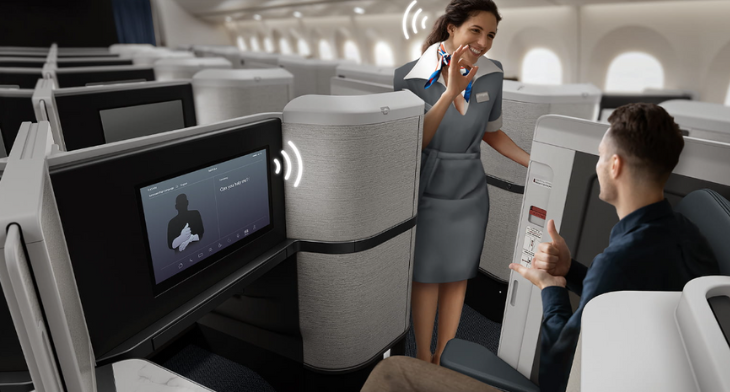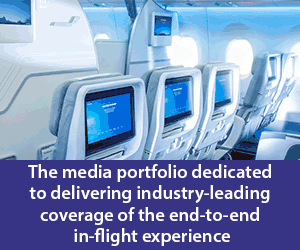
RTX business Collins Aerospace has revealed it has been named as a finalist for three Crystal Cabin Awards.
The awards recognise excellence in aircraft interior innovation and the winners will be announced in eight categories on 28 May in Hamburg, Germany as part of the annual Aircraft Interiors Expo.
The three solutions named as finalists are as follows. Collins has won 13 Crystal Cabin Awards to date.
Collins’ STARLight™ structural technology:
This technology utilises advanced composite design tools, robotic manufacturing and renewable materials to create tailored and bionic architectures that significantly reduce carrying weight, associated fuel burn and manufacturing costs.
Thinner, lighter and stronger, STARLight structures reduce weight over traditional honeycomb panels.
STARLight material can easily integrate into many cabin interior spaces – including seats, galleys, monuments, lavatories, interior linings and more.
Innovative production processes utilize automated machining techniques, eliminating the use of pre-preg fabric materials and adhesives in production.
Collins’ ARISE™ intelligent comfort system:
The system integrates sensor technology and advanced materials into seating products to mitigate the three main sleep disturbances during flight – core heat regulation, pressure distribution and vibration.
Active sensors analyse seating positions, environmental conditions and body temperature, making real-time adjustments to optimise comfort and increase rest. Individual comfort profiles can be preset, allowing the system to intuitively adjust the environment and cushions based on user preferences.
Anti-vibration materials reduce peak vibration periods by as much as 30%, easing the effects of a primary inflight sleep disruptor.
Collins’ ADAPT™ digital flight experience control:
This solution accommodates the unique needs and individual preferences of passengers by providing familiar, intuitive and accessible control of their seat, in-flight entertainment (IFE) and on-board service in a singular, integrated platform. Syncing with personal devices, passengers control the seat, IFE and service on their smartphone.
Accessibility preferences already defined with personal devices seamlessly load to the ADAPT application, granting user familiarity and control from the first usage. The ADAPT platform can inform on-board crews of unique passenger needs, better shaping the service approach. For instance, if a passenger is non-verbal, speaks another language or uses American Sign Language, the advanced functionality of the ADAPT system can help facilitate improved communication.





